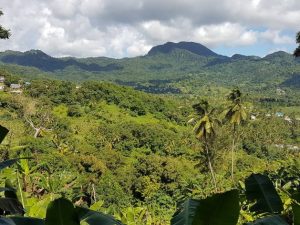Covid19 is most seriously impacting people who were already negatively affected by conflict, climate change and precarious food systems, while also being used by companies to further extend their hold on food and agribusiness. The neoliberal economy has foisted a dangerous industrial food system on society. Industrial livestock production is a central player; consumers often have no idea of the real price of cheap, mass-produced, anonymous meat that actually comes at great cost to people, animals, climate and biodiversity.
Small landholdings (less than 2 hectares) contribute approximately 30 per cent of global crop production and 30 per cent of the global food caloric supply, using around a quarter of agricultural land and usually maintaining rich agro-biodiversity. At least a quarter of the global land area is traditionally owned, managed, used or occupied by indigenous peoples. Women are often the guardians of seed for their communities, breeding and selecting it, passing their knowledge from generation to generation, creating and maintaining in situ community seed banks. Women also practice community forest management and are the keepers of medicinal plants and healers.
Much of agroecology has its roots in the practices of indigenous peoples and peasant farmers. Agroecological systems are multifunctional; they provide good food and livelihoods while caring for soils and water, maintaining biodiversity including agricultural biodiversity and addressing climate change, using traditional knowledge and appropriate modern science. Agroecology is a process that aims to expand the realm of democracy and freedom, by regenerating a diversity of locally autonomous and socially just food systems.
A strong focus on agroecology and food sovereignty could help society build sustainable and just farming. It is vital that indigenous peoples, local communities and peasant farmers, especially women, are properly included in policy development and decision-making on food systems. The way to proceed is essentially local and involves interaction with local biodiversity and cultures and conditions, but it must be empowered at every level from the local to the international. Additionally, land rights, especially collective land rights must be recognised and respected.
Source: https://www.radicalecologicaldemocracy.org/looking-beyond-the-pandemic-agroecology-and-the-need-to-rethink-our-food-system/
– Third World Network




